OLD post … You’re being redirected to a newer version……
Don’t run back inside
Darling you know just what I’m here for
So you’re scared and you’re thinking
That maybe we ain’t that young anymore
Show a little faith there’s magic in the night
You ain’t a beauty but hey you’re alright
Oh and that’s alright with me
~From “Thunder Road”To hear Springsteen sing the line “Hiding on the backstreets” is to be captured by an image; the details can come later. Who needed to figure out all the words to “Like a Rolling Stone” to understand it?
~Greil Marcus (rollingstone.com)Born to Run is a powerhouse release that takes you on an open-ended cinematic rock and roll journey.
~Bill Pulice (puluche.com)
Happy Birthday to my fav Springsteen album!
Thunder Road – best version – Live @ Hammersmith 1975-11-18:
Wings For Wheels – The Making of Born to Run (GREAT documentary – ~90min)
From Wikipedia:
| Released | August 25, 1975 – (38 years old:) |
|---|---|
| Recorded | Record Plant, New York 914 Sound Studios, Blauvelt, New York January 1974 – July 1975 |
| Genre | Rock |
| Length | 39:26 |
| Label | Columbia |
| Producer | Bruce Springsteen, Mike Appel, Jon Landau |
Born to Run is the third album by the American singer-songwriter Bruce Springsteen. It was released on August 25, 1975 through Columbia Records. It captured the heaviness of Springsteen’s earlier releases while displaying a more diverse range of influences.
Born to Run was a critical and commercial success and became Springsteen’s breakthrough album. It peaked at number three on the Billboard 200, eventually selling six million copies in the US by the year 2000. Two singles were released from the album: “Born to Run” and “Tenth Avenue Freeze-Out”; the first helped Springsteen to reach mainstream popularity. The tracks “Thunder Road” and “Jungleland” became staples of album-oriented rock radio and Springsteen concert high points.
On November 14, 2005, a “30th Anniversary” remaster of the album was released as a box set including two DVDs: a production diary film and a concert movie.
The album is noted for its use of introductions to set the tone of each song (all of the record was composed on piano, not guitar), and for the Phil Spector-like “Wall of Sound” arrangements and production. Indeed, Springsteen has said that he wanted “Born to Run” to sound like “Roy Orbison singing Bob Dylan, produced by Spector.” Most of the tracks were first recorded with a core rhythm section band comprising Springsteen, Weinberg, Bittan, and bassist Garry Tallent, with other members’ contributions then added on.
In terms of the original LP’s sequencing, Springsteen eventually adopted a “four corners” approach, as the songs beginning each side (“Thunder Road”, “Born to Run”) were uplifting odes to escape, while the songs ending each side (“Backstreets”, “Jungleland”) were sad epics of loss, betrayal, and defeat. (Originally, he had planned to begin and end the album with alternative versions of “Thunder Road”.)
Also, original pressings have “Meeting Across the River” billed as “The Heist”. The original album cover has the title printed in a graffiti style font. These copies are very rare and considered to be the “holy grail” for Springsteen collectors.
The album’s release was accompanied by a $250,000 promotional campaign by Columbia directed at both consumers and the music industry, making good use of Landau’s “I saw rock ‘n’ roll’s future—and its name is Bruce Springsteen” quote. With much publicity, Born to Run vaulted into the top 10 in its second week on the charts and soon went Gold. Time and Newsweek magazines put Springsteen on the cover in the same week (October 27, 1975) – in Time, Jay Cocks praised Springsteen, while the Newsweek article took a cynical look at the “next Dylan” hype that haunted Springsteen until his breakthrough. The question of hype became a story in itself as critics began wondering if Springsteen was for real or the product of record company promotion.
The album debuted on the Billboard album chart on September 13, 1975 at #84. The following week it made an impressive increase entering the top 10 at #8, then spent two weeks at #4, and finally, during the weeks of October 11 and October 18,Born to Run reached its peak position of #3.
Born to Run continued to be a strong catalog seller through the years, re-entering the Billboard chart in late 1980 after The River was released, and again after the blockbuster success of Born in the U.S.A., spending most of 1985 on the chart. It was certified triple-platinum by the Recording Industry Association of America in 1986, the first year in which pre-1976 releases were eligible for platinum and multi-platinum awards.
- In 1987, Born to Run was ranked #8 by Rolling Stone in its “100 Best Albums of the Last Twenty Years”
- in 2003, in its “The 500 Greatest Albums of All Time” ranked Born to Run at number 18.
- In 2001, the TV network VH1 named it the 27th-greatest album of all time
- and in 2003, it was ranked as the most popular album in the first Zagat Survey Music Guide.
Track listing:
Side one
1. “Thunder Road” 4:49
2. “Tenth Avenue Freeze-Out” 3:11
3. “Night” 3:00
4. “Backstreets” 6:30
Side two
1. “Born to Run” 4:31
2. “She’s the One” 4:30
3. “Meeting Across the River” 3:18
4. “Jungleland” 9:34
—-
My ratings:
- Thunder Road 5/5
- Born To Run 5/5
- Jungleland 5/5
- Backstreets 5/5
- Tenth Avenue Freeze-out 4.5/5
- Meeting Across The River 4/5
- She’s The One 4/5
- Night 4/5
It is a magnificent album that pays off on every bet ever placed on him — a ’57 Chevy running on melted down Crystals records that shuts down every claim that has been made. And it should crack his future wide open.
~Greil Marcus (rollingstone.com)
| Born to Run is not only Bruce Springsteen’s breakthrough album, but also the record that forever cemented the prolific singer/songwriter’s place in rock and roll history. Afraid of being dropped by his label due to the less than favorable sales of his two previous LPs, he set out to make his greatest rock and roll album ever and boy did he succeed.Born to Run is a powerhouse release that takes you on an open-ended cinematic rock and roll journey. He meticulously wrote and rewrote each song until he recreated the epic sound and imagery he was looking for. His efforts paid off dearly resulting in what is possibly the most perfect song structure and sequencing since the Beach Boys’ Pet Sounds. Each side of the record begins with an innocent desire to break free and ends with dramatic tales of loss and defeat. Born to Run also marks Springsteen’s first time recording in a big professional studio complete with a superstar budget. He took full advantage of those resources and managed to recreate Phil Spector’s legendary Wall of Sound with countless overdubs, most notably heard on the title track.This groundbreaking album would not be complete without its iconic and often replicated fold out cover of Springsteen and saxophonist Clarence Clemons. Bruce has said about the cover: “it’s one of those records that you didn’t have to hear. When you saw the cover you said ‘I want that one’.” ~Bill Pulice (puluche.com) |
Personnel:
The E Street Band
- Bruce Springsteen – lead vocals, lead and rhythm guitars, harmonica, percussion
- Roy Bittan – piano, Fender Rhodes, organ, harpsichord, background vocals on all tracks except “Born to Run”
- Clarence Clemons – saxophones, tambourine, background vocals
- Danny Federici – organ and glockenspiel on “Born to Run”
- Garry W. Tallent – bass guitar
- Max Weinberg – drums on all tracks except “Born to Run”
Additional musicians
- Wayne Andre – trombone
- Mike Appel – background vocals
- Michael Brecker – tenor saxophone
- Randy Brecker – trumpet, flugelhorn
- Ernest “Boom” Carter – drums on “Born to Run”
- Richard Davis – double bass
- Suki Lahav – violin on “Jungleland”
- David Sanborn – baritone saxophone
- David Sancious – piano, organ on “Born to Run”
- Steven Van Zandt – background vocals on “Thunder Road”, horn arrangements
Production
- John Berg – album design
- Greg Calbi – mastering
- Charles Calello – conductor, string arrangements
- Andy Engel – album design
- Bob Ludwig – remastering
- Eric Meola – photography
- Steven Van Zandt – horn arrangements on “Tenth Avenue Freeze-Out”
Engineers
- Andy Abrams
- Angie Arcuri
- Ricky Delena
- Jimmy Iovine
- Louis Lahav
- Thom Panunzio
- Corky Stasiak
- David Thoener
Born To Run – Live:
Jungleland (Live in New York 2001):
Backstreets live @ Hammersmith 75:
Tenth Avenue Freeze-out live @ Hammersmith 75:
Spotify:
-Egil

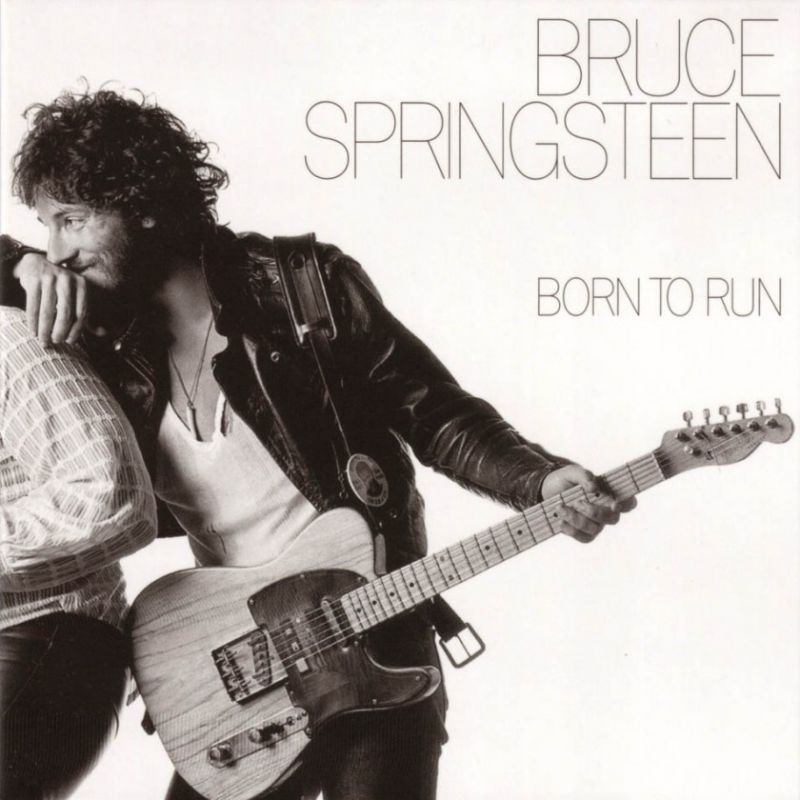
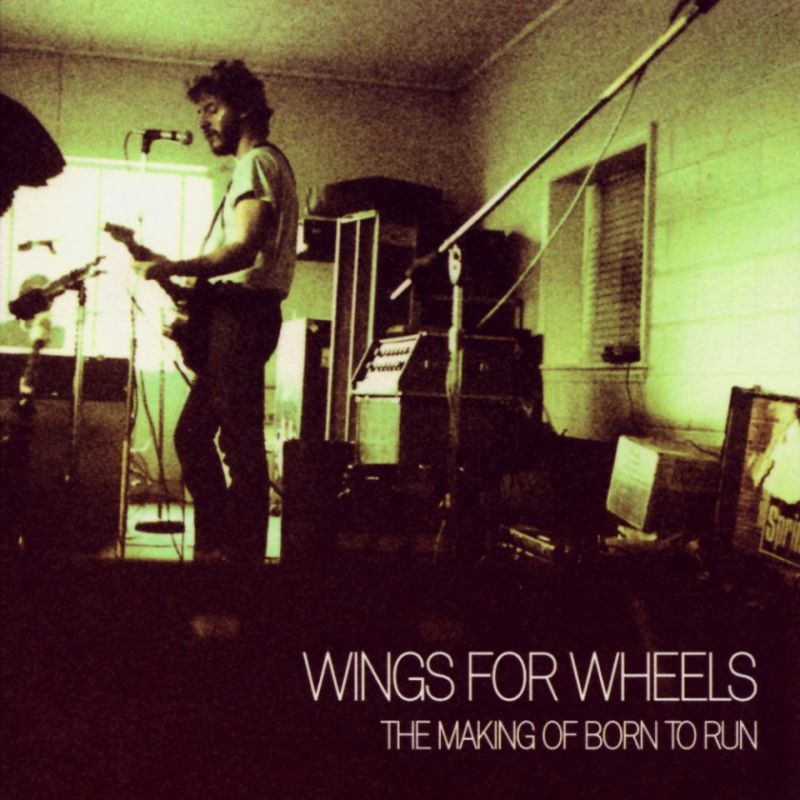
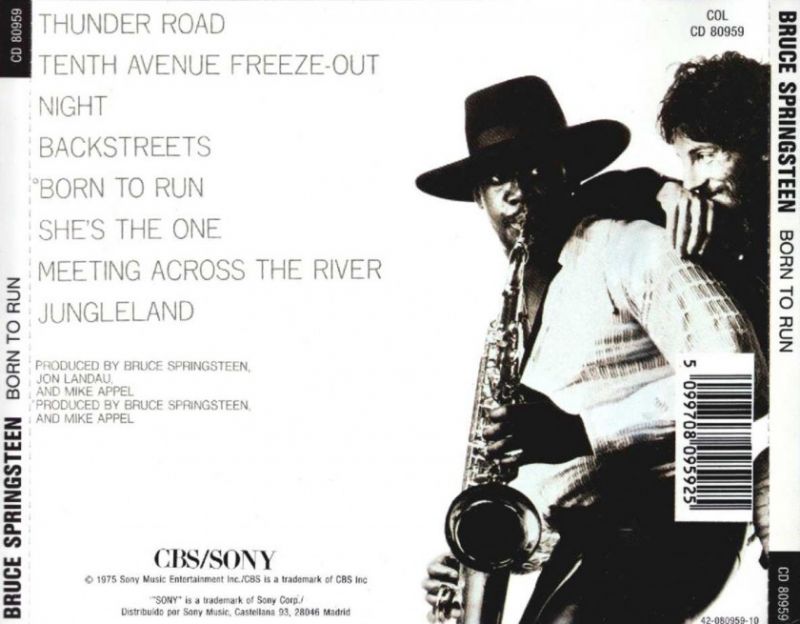
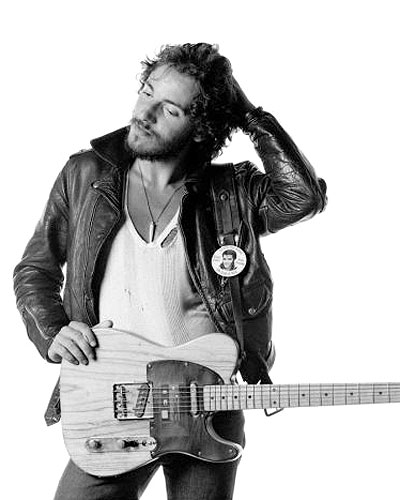
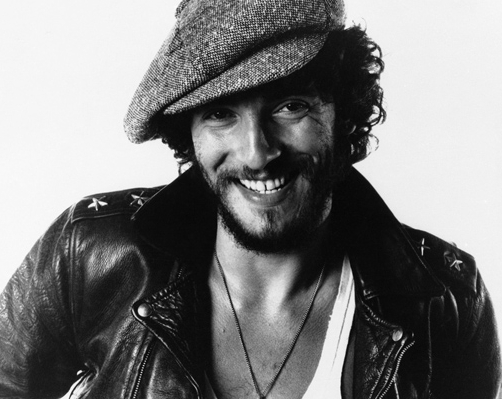
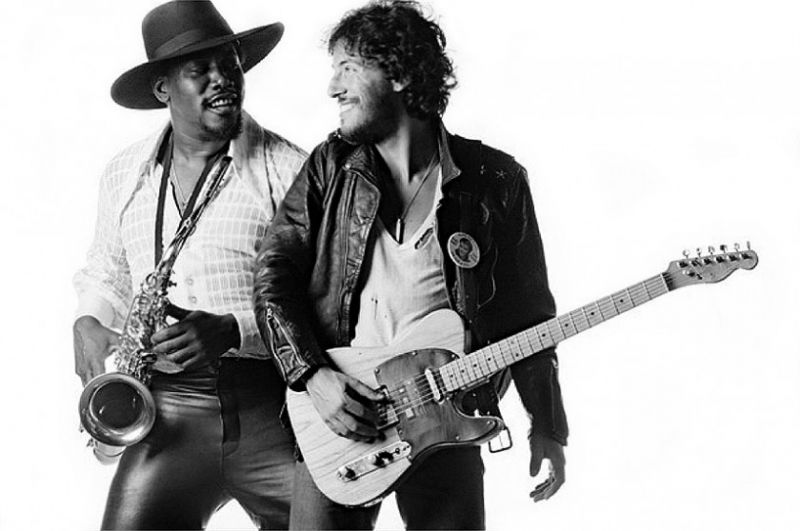
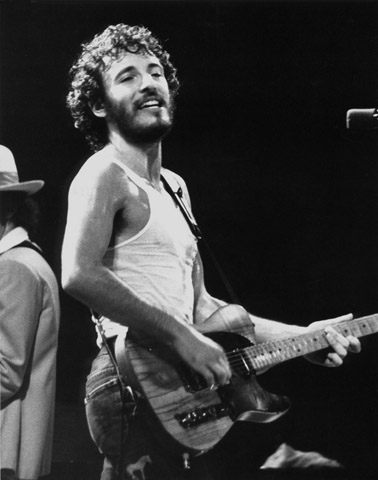
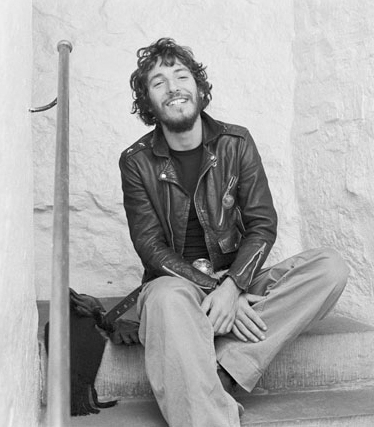
Awesome…thanks for all this information! I just wrote a post about how important this album is to me.
not much of a Bruce fan, but this is a great album – and those 75 concerts are dope. Can you imagine seeing Springsteen and Dylan live in ’75 ? That would have been to die for …